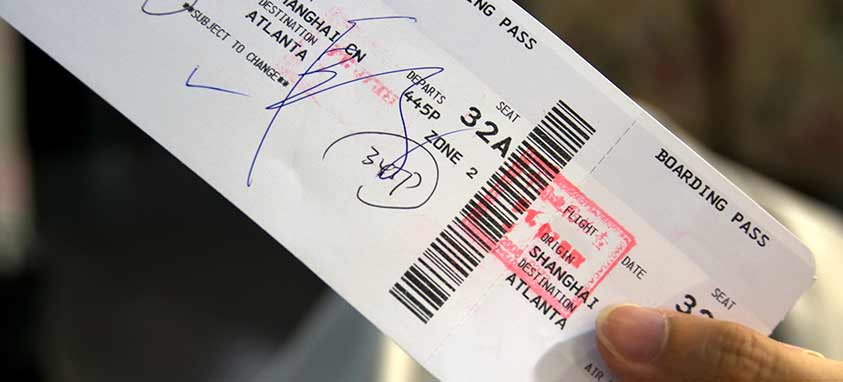This article first appeared in a tweet and, as I was about to go on my next trip, it caught my interest from the security perspective and I thought you might like to read it, too. However, since I’m a fan of the electronic boarding pass, I did a quick electronic vs. paper, in-person survey of my peers, customers, and strangers on my next flight to find out what the preference is. Based on that survey, the jury is still out since the count was about 50/50.
Which do you prefer and why? Comment below with “printed” or “electronic,” briefly tell us why and let’s complete the poll.
This article originally appeared in the November 2015 issue of Smart Meetings magazine.
If you’re thinking of leaving your boarding pass tucked in the airplane seat pocket or chucking it in the trash, you might want to think again. According to the information security blog Krebs on Security, there is a trove of personal information listed on boarding passes that anyone with a computer can access. Within the plain text alone, your name and flight number are enough to help hackers fish out additional personal data. But the biggest culprit is the barcode, which holds even more information.
Inside the barcode, the record locator contains a passenger’s frequent-flyer number and other identifiable information that’s best kept private. While every airline uses a different means of storing boarding pass information, any number of free websites can instantly decode barcode data. Hackers can easily gain access to your airline account and look up any booked flights.
“[Hackers] have the ability to view all future flights tied to that frequent flyer account, change seats for the ticketed passengers and even cancel any future flights,” the blog states. Everything from PIN numbers to phone numbers are also up for grabs using information gleaned from the barcode.
If printing boarding passes is the most convenient method for you, be sure to hold on to paper passes, then shred them when you get home. Also, most U.S. and international airlines and airports are equipped to issue and scan electronic boarding passes right on your smartphone, eliminating any worry about paper–and your personal information–falling into the wrong hands. krebsonsecurity.com






